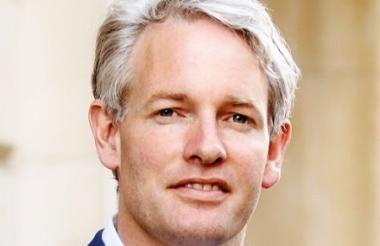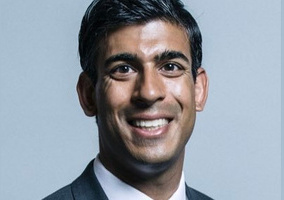The Lobbying Act does not stop charities from campaigning and the government does not have any deep objection to hearing from the sector, according to MP Danny Kruger.
Kruger, a Conservative MP who has been carrying out a review of role the sector could play in the government's levelling up agenda, was speaking at an NPC event yesterday about how to get charities up the policy agenda.
Many in the sector have blamed the introduction of the Lobbying Act for making it harder for charities to campaign on issues, particularly during elections.
However, when asked what the government's attitude to campaigning is and what it should be, Kruger said: “The Lobbying Act doesn't stop people campaigning. Government doesn't have any deep objection to it.”
He said: “I don't overall have a problem with charities campaigning. The obvious point is that's their job.”
Kruger said it is “the wrong vision” that charities should just work on the ground and we should “leave politics to the big boys”.
He added: “I think charity campaigning is fine and I think there is a lot of overblown anxiety about it.”
‘The sector often feels nobody pays attention’
Kruger suggested this was related to the idea that people feel that the sector is “unloved”. He said: “The sector often feels nobody pays attention or cares about it, and I know exactly what you mean.”
He added that while the sector can sometimes be “peripheral” to the news agenda and party manifestos, “I share with you the ambition to get it more salience in public debates and then in the media discussion of what matters.”
Kruger, a former Number Ten adviser, was recently asked by Boris Johnson to look at how charities can support public services and people facing additional disadvantage as a result of the crisis, as well as what tools may be needed to support the sector.
He has now concluded his report, although the recommendations have not been made public.
Kruger said although the political attention is on the stuff with the big budgets, “in doing this review you see how much politicians really care about civil society” and about social infrastructure.
There is a “paradox” whereby politicians know it matters but it is not talked about, he said.
“Everyone I talked to in parliament nods along and starts to tell me about some amazing project they have locally or some important challenge they've got that they know that the social sector is the answer to.”
Kruger said that if this government “could demonstrate its commitment” to social infrastructure and community power, “I think I think we would have done our bit in the relationship.”
He added: “I hope that we then get a good reaction. Even if most charity leaders at the moment are all liberal remainers who hate Boris, they'll – I hope – overlook that.”
Next stages
Kruger said that now he has “come up with some headline suggestions”, he hopes his report will lead to a wider consultation and formal public debate at the next stage.
He said that his proposals build on the Civil Society Strategy and are “not reinventing anything or going backward, but trying to take forward the civil society strategy with the added momentum of the locked down and the pandemic and the imperative of good recovery”.
The MP noted “there has been this incredible upsurge of neighbourliness and community spirit volunteering, also crucially for our sector, the flexibility in the public sector” during the pandemic.
He said: “I hope we can have proper engagement with the millions of people who stepped up and volunteered in this crisis, all of the community groups that have mobilised themselves and the public sector, local authorities, which have flexed to support civil society. And then I think collectively as a country, we could and should be talking about how we want to build back better.”
Kruger emphasised the fact that there has been lots of change, particularly in “that we've realised the centrality of our community connections and people are literally living locally in a way they haven't for years, living and working close to home”.
“I think there are now new opportunities for a better model, and I hope the public will drive this agenda,” he added.
In some areas such as mental health, family trouble, financial trouble and unemployment, “community action” will be key, he said. This means “not just thinking there's some professional public service that will sort that out for you if we just funded it better. We need communities to be strong in order to address those social challenges.”
He said: “I think we just need to localise power a lot. And then we'll find the actual real values of the British people expressed more in civil society than they are currently.”
Kruger added that the super-rich gives away less than 1% of their wealth so “something is going wrong, we do need to change the culture on that”.
Yet bigger than philanthropy “is the public procurement budget”, said Kruger.
“That is where I think the real opportunity is, for us all to see money currently spent on goods and services being spent with an eye to investment in communities and social value. It needs to be beefed up and extended to principles embedded in government rather than it being a sort of bolt on,” he said.











